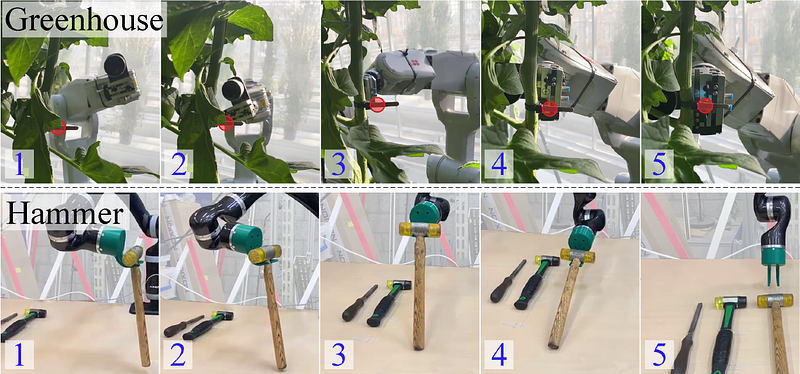Deep Metric Imitation Learning for Stable Motion Primitives

Deep Metric Imitation Learning for Stable Motion Primitives
Rodrigo Pérez-Dattari, Cosimo Della Santina, Jens Kober
AbstractImitation Learning (IL) is a powerful technique for intuitive robotic programming. However, ensuring the reliability of learned behaviors remains a challenge. In the context of reaching motions, a robot should consistently reach its goal, regardless of its initial conditions. To meet this requirement, IL methods often employ specialized function approximators that guarantee this property by construction. Although effective, these approaches come with a set of limitations: 1) they are unable to fully exploit the capabilities of modern Deep Neural Network (DNN) architectures, 2) some are restricted in the family of motions they can model, resulting in suboptimal IL capabilities, and 3) they require explicit extensions to account for the geometry of motions that consider orientations. To address these challenges, we introduce a novel stability loss function, drawing inspiration from the triplet loss used in the deep metric learning literature. This loss does not constrain the DNN's architecture and enables learning policies that yield accurate results. Furthermore, it is easily adaptable to the geometry of the robot's state space. We provide a proof of the stability properties induced by this loss and empirically validate our method in various settings. These settings include Euclidean and non-Euclidean state spaces, as well as first-order and second-order motions, both in simulation and with real robots. More details about the experimental results can be found at: https://youtu.be/ZWKLGntCI6w.


